
Life Sciences
-

Fostering Plant Diversity Through Community Participation
The INCREASE project helps protect plant genetic resources by involving citizens in growing and tracking different types of beans, which boosts biodiversity and supports sustainable farming.
-
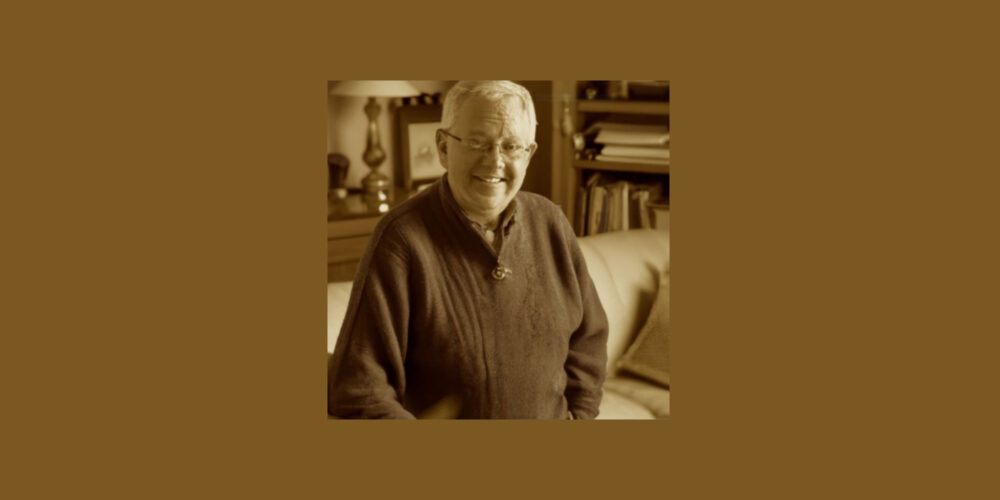
Via algorithm into a virtual parallel reality
With “Horst Schlager,” the Ars Electronica Center infiltrates a media art figure into Facebook’s extremist underground in order to understand and communicate political grievances.
-
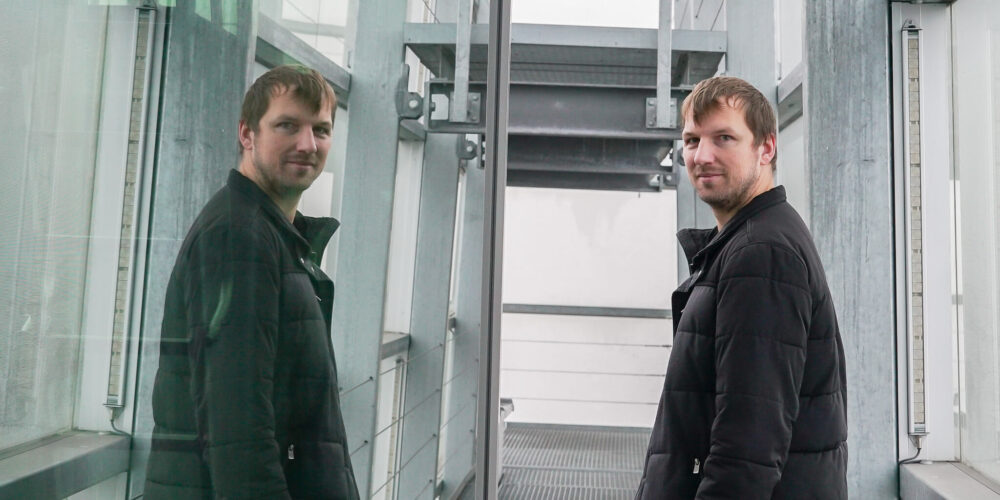
The energy changer
Citizen Science has many faces, Elias Silber is one of them: His commitment optimized the energy balance of Ars Electronica within a minimum of time.
-
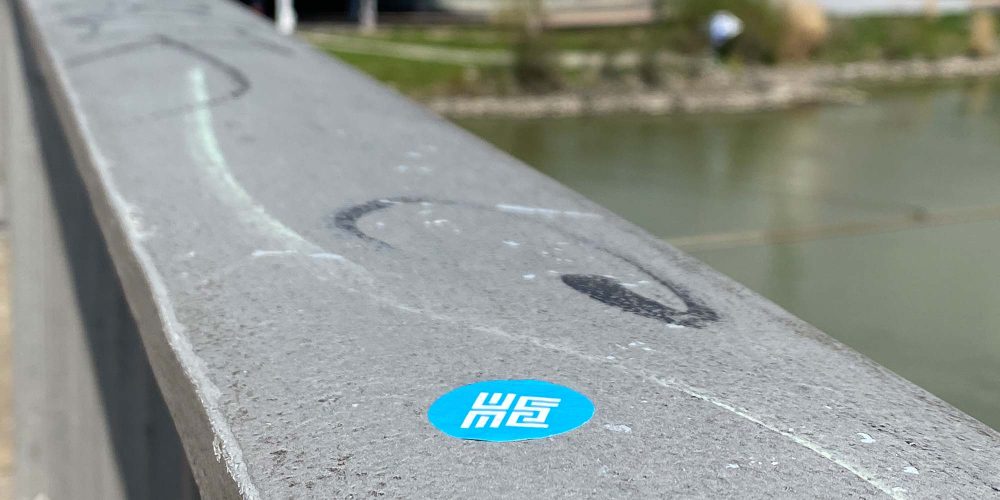
Center Story: April 2022
With our new “Center Stories” format, we’re telling you what’s going on behind the scenes at the Ars Electronica Center. In the first story, we want to introduce you to our plant offspring and recall a past exhibition.
-
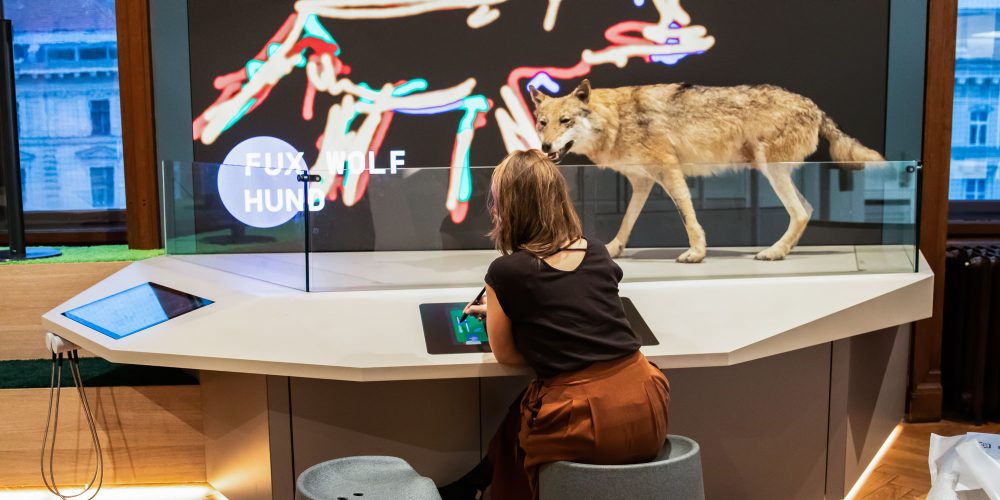
Deck 50: New Science Communication Platform at the Vienna Natural History Museum
By the means of Citizen Science, a new laboratory and workshop area, interactive research stations and immersive worlds in Deck 50 awaken the researcher’s instinct in visitors and invite to engage.
-
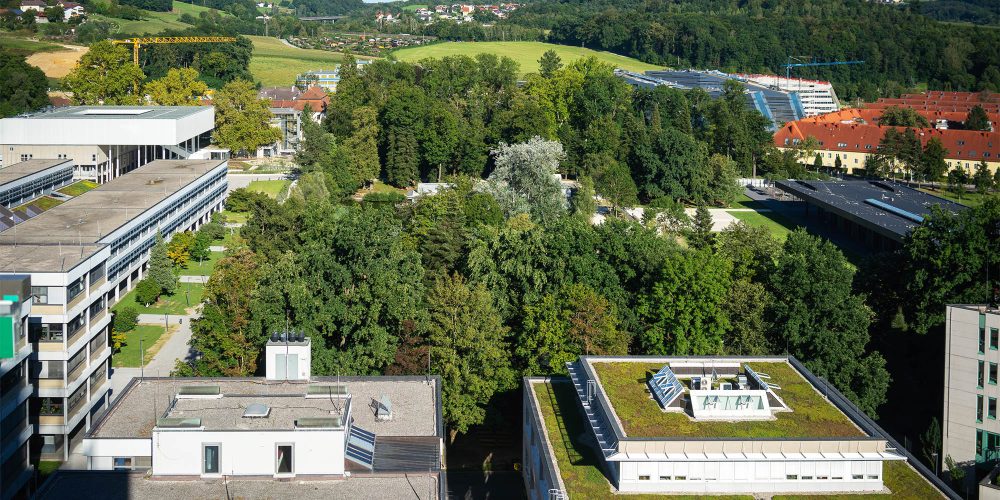
Meinhard Lukas: From the Postcity into Kepler’s Gardens
It was the site of the old post distribution center at the main train station, where the magicians of Ars Electronica transformed an analog yesterday into a digital tomorrow. In no other place and in no other time has Linz ever been more urban and international than in the Postcity.
-
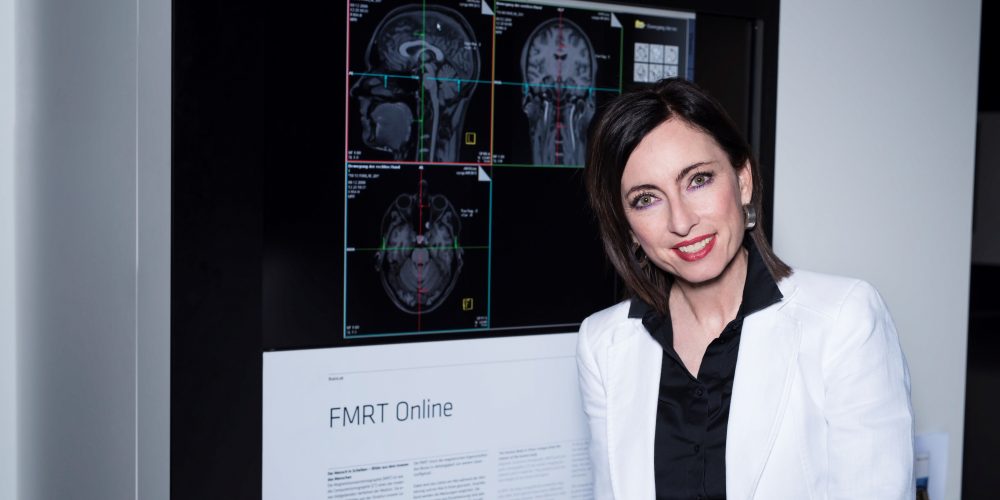
Manuela Macedonia: Ten Years “Brain For All” In Special Times
What does sport have to do with the brain and what percentage of our brain do we really use? These and similar questions have been addressed by Dr. Manuela Macedonia for 10 years now in her lecture series “Brain for All” at the Ars Electronica Center. Today she’s celebrating her premiere at Ars Electronica Home…
-
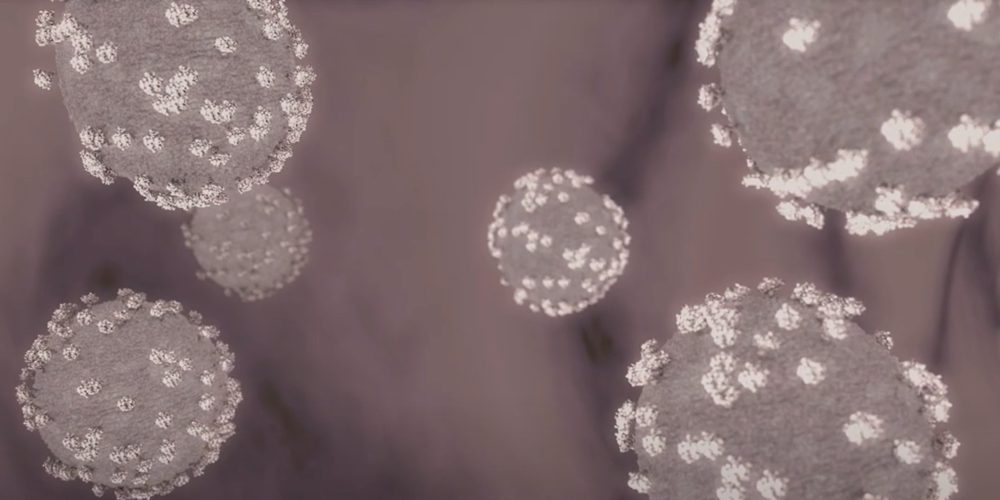
How AI, Big Data and Machine Learning can also be used against the Corona virus
There are countless examples where AI is currently being used in the fight against the Corona virus and many companies, scientists and artists are working on similar plans. We exemplary present you some of these projects.
-
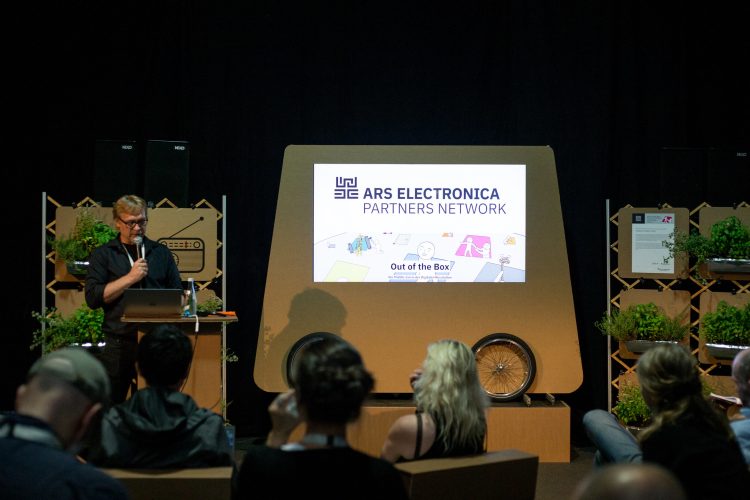
From Theory to Practice: Ars Electronica Research Institutes
Here, academic basic research meets Ars Electronica Futurelab’s artistic/scientific application scenarios: Starting in autumn 2019, the new Ars Electronica Research Institutes will be building a bridge between theory and practice. In this interview, we learned exactly what that looks like.
-

Quantum Logos – An artistic Approach to Quantum Physics
You understand nothing when it comes to quantum physics? Don’t worry, you’re not alone! The Quantum Travelers are using artistic means to get to the bottom of this difficult matter with their Deep Space project “Quantum Logos” at the Ars Electronica Festival.
-
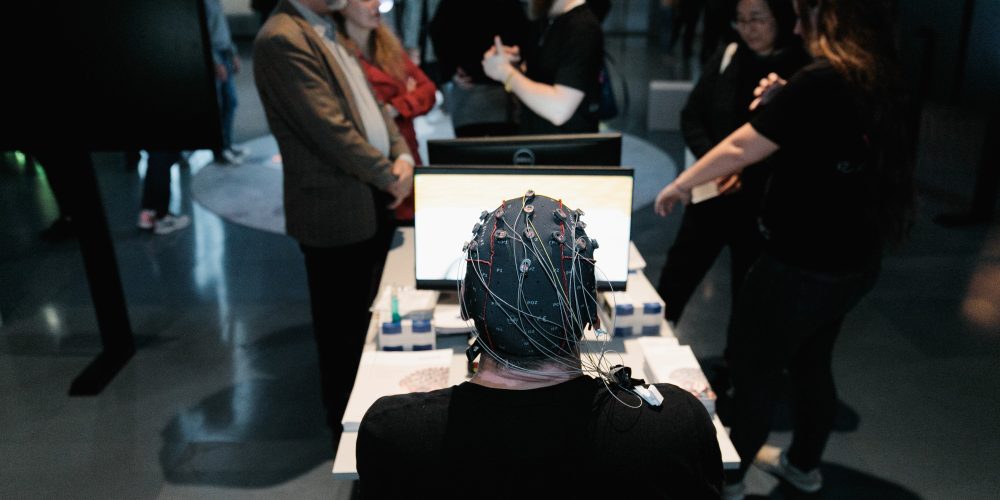
The power of thought: Interview with Christoph Guger
With an EEG hood on your head, a BCI, you can control a drone, drive an excavator or operate a fire engine. Or the system can be used for the rehabilitation of stroke patients and for working with coma patients, as Christoph Guger, founder and managing director of g.tec, explains.
-
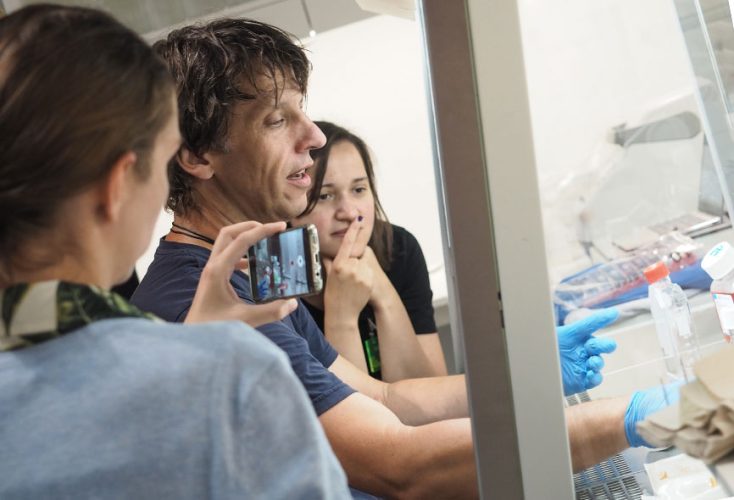
“Humans can determine their own evolution”
With innovative tools such as CRISPR/Cas9, humans can dive deeper into the development of life ever before and change it according to their own ideas. Manuel Selg from FH OÖ Campus Wels will talk about what this is all about and what has happened since the first BioLab was set up at the Ars Electronica…
-
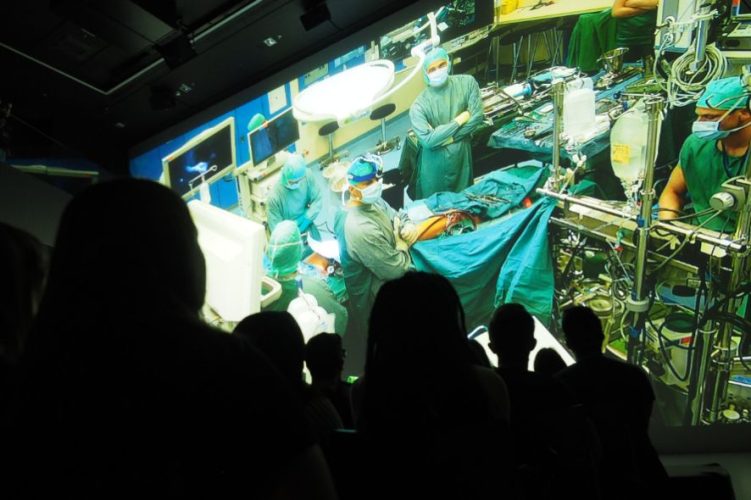
Live Heart Surgery at Deep Space 8K
Mehr als 100 Besucherinnen und Besucher waren am 4. April im Deep Space des Ars Electronica Center mit dabei und konnten eine Herz-OP im Kepler Universitätsklinikum live mitverfolgen.
-

Diving into Deep Space with Noise Aquarium
Current scientific studies have shown with shocking examples that noise sources such as sonar and fracking are extremely harmful to large marine life. Noise also affects microscopic organisms such as plankton, as Victoria Vesna and her collaborators show in their interactive installation in Deep Space 8K at the Ars Electronica Festival 2018, where Victoria Vesna…
-
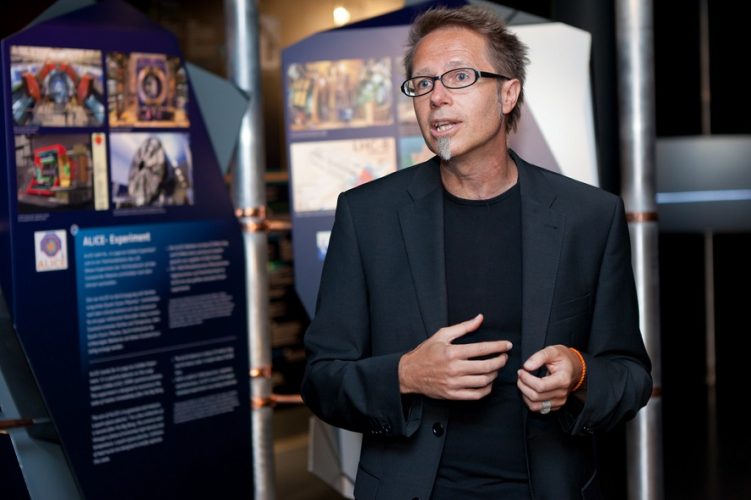
Academy of Error: Antimatter Physicist Michael Doser
The Academy of Error at the 2018 Ars Electronica Festival is bringing international experts in science and research to Linz to reflect on how to come to terms with error. Michael Doser, an antimatter physicist at CERN who will moderate this event on September 9th, gave us a few advance insights into mistakes, research and…
-
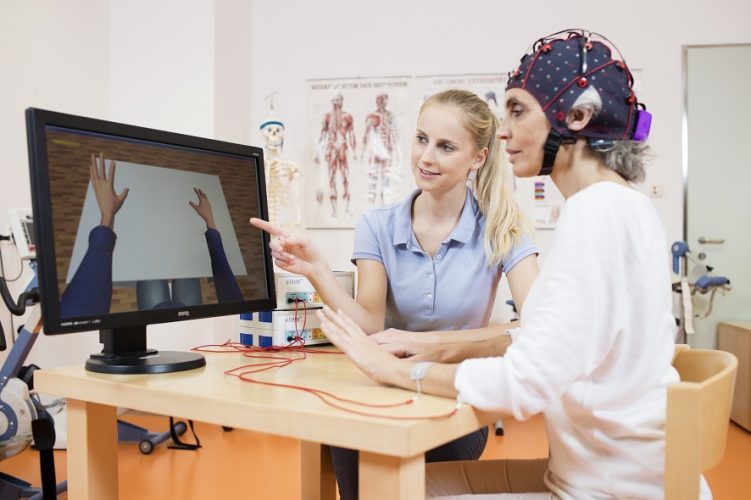
Innovative Help after a Stroke: Bugfix the Brain
Therapy that makes progress even years after a stroke, improved motor functions, and high-tech aids for everyday life—an Upper Austrian firm named g.tec makes it happen. To find out why g.tec’s technologies produce such impressive results and how to try them out at the Ars Electronica Festival September 6-10, 2018, read this interview!
-
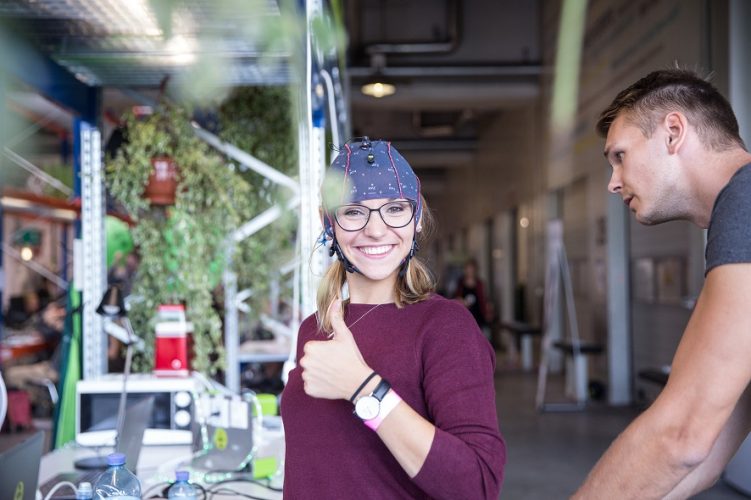
BR41N.IO Hackathon: Eat, Sleep, Hack, Repeat!
24 hours—that’s all the time allotted to hackers and artists for the completion of their brain-computer interface projects during the BR41N.I0 Hackathon September 8-9, 2018 at the Ars Electronica Festival. To find out what awaits you at this year’s Hackathon set amidst a media art conclave, read on.
-
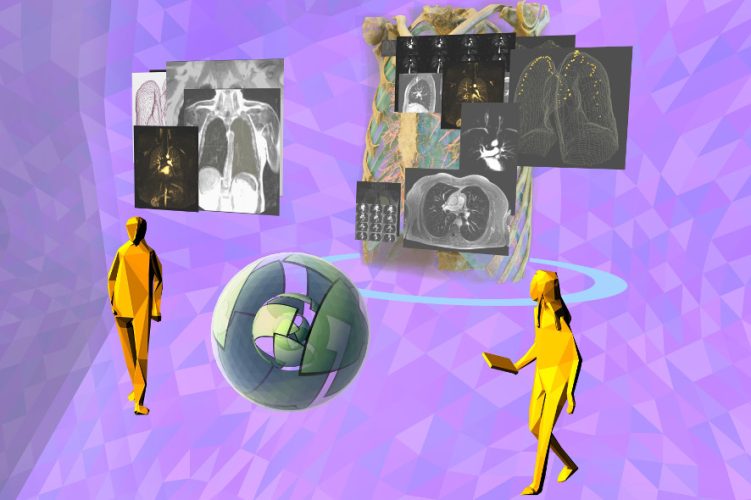
Physicians’ Colleague, Patients’ Helper: The Cognitive Computer
The 3-D short film entitled “Physicians’ Colleague, Patients’ Helper: The Cognitive Computer” will be running in Deep Space 8K at the Ars Electronica Center beginning in May. This film explains how deep neural networks can facilitate the evaluation of medical data, and how this is changing both the physician’s role and the doctor-patient relationship.
-
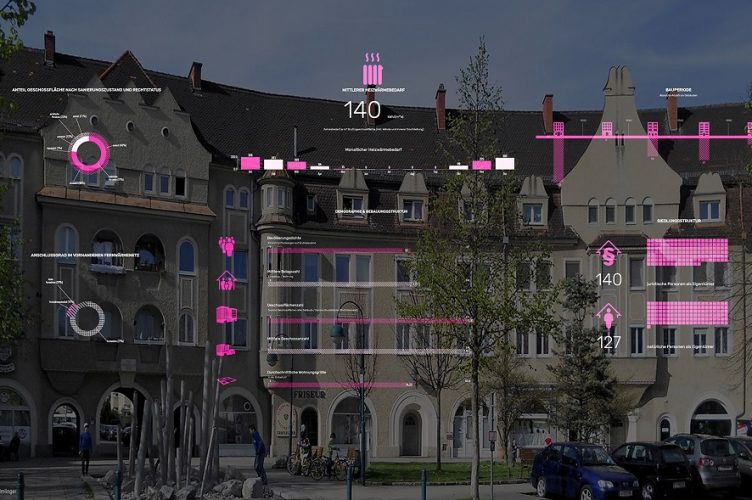
E_PROFIL: A Toolkit for the Environment
What are some real ways to achieve climate & energy goals? What measures have to be implemented and where do you get started? The Ars Electronica Futurelab was invited by the department of Spatial Planning (TU Vienna) and the City of Linz (Planning, Technology, Environment) to join a consortium working on E_PROFIL, a toolkit that…
-
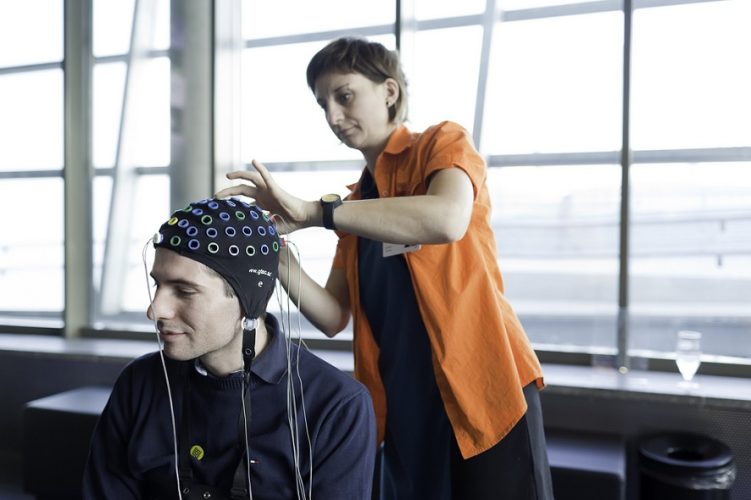
Brains for Everybody: Through the Internet via the Power of the Mind
The “Brains for Everybody” series of talks at the Ars Electronica Center provides periodic briefings on the latest findings in brain research and methods used in that field. In a special edition, Dr. Selina Wriessnegger explained what brain-computer interfaces are, how they’re used, and what the internet has to do with them. She puts it…
-
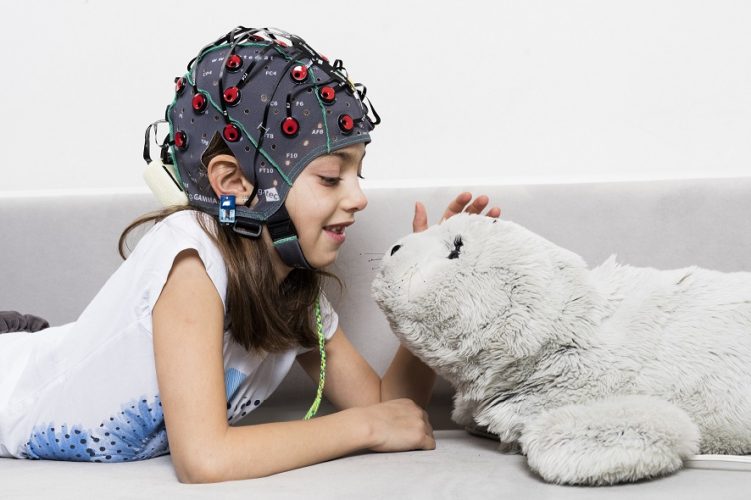
BR41N.IO Hackathon: On Your Marks, Get Set, Hack!
This event is the first of its kind at the Ars Electronica Festival—the BR41N.IO Hackathon demands high performance from hackers and designers, who’ll have 24 hours beginning at 11 AM on Friday, September 8th to conjure up projects based on brain-computer interfaces. To find out how this Hackathon will happen, what sort of stuff will…
-
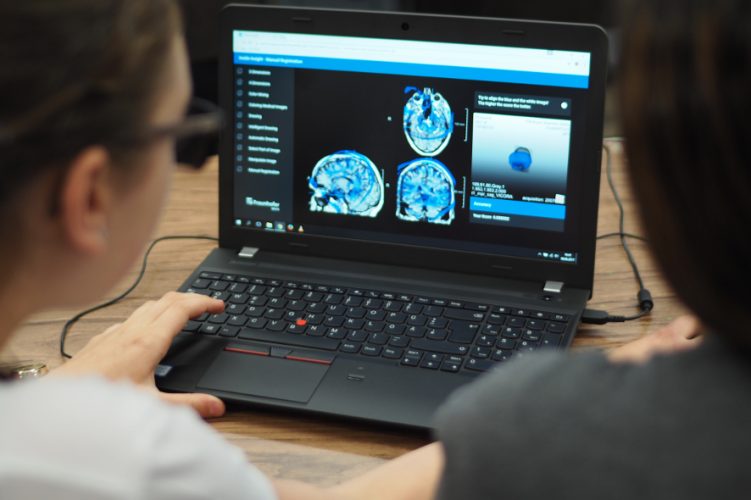
Medical technology and art make a wonderful match!
The Fraunhofer Institute for Medical Image Computing MEVIS based in Bremen, Germany and Taiwanese media & sound artist Yen Tzu Chang have organized a workshop for pupils in cooperation with the Ars Electronica Center. The workshop blends art and science—in concrete terms, technical procedures of medical imaging and sound art. We talked to Sabrina Haase…
-
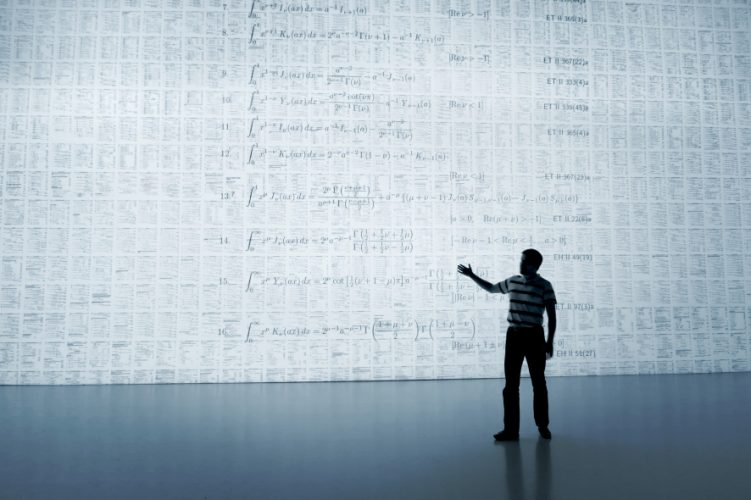
The Kepler Conjecture
Mathematics is the topic of the fifth and last installment of “Next Generation JKU.” This series of talks was launched in cooperation with Linz’s Johannes Kepler University to give outstanding young scholars working in engineering and science the opportunity to utilize the leading-edge technology available in Deep Space 8K at the Ars Electronica Center to…
-
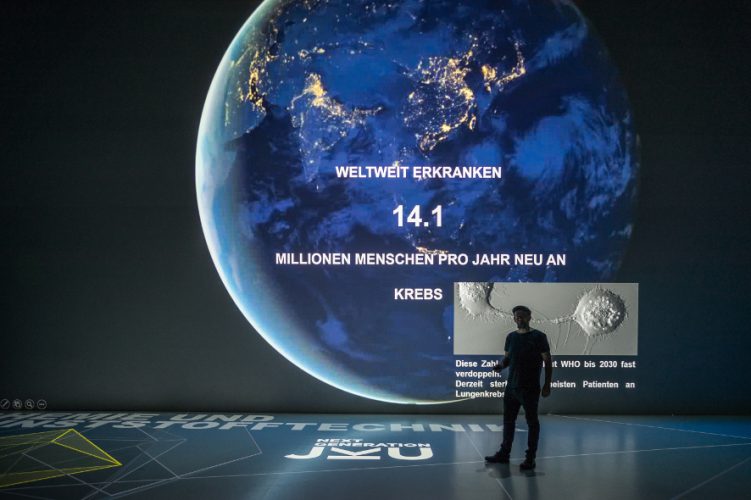
Life Is All about Chemistry
Next Generation JKU is a series of talks designed to give outstanding young scientists on the Faculty of Engineering and Natural Sciences of Johannes Kepler University Linz the opportunity to utilize the extraordinary technologies available in Deep Space 8K at the Ars Electronica Center for an ultra-high-definition presentation of their research.
-
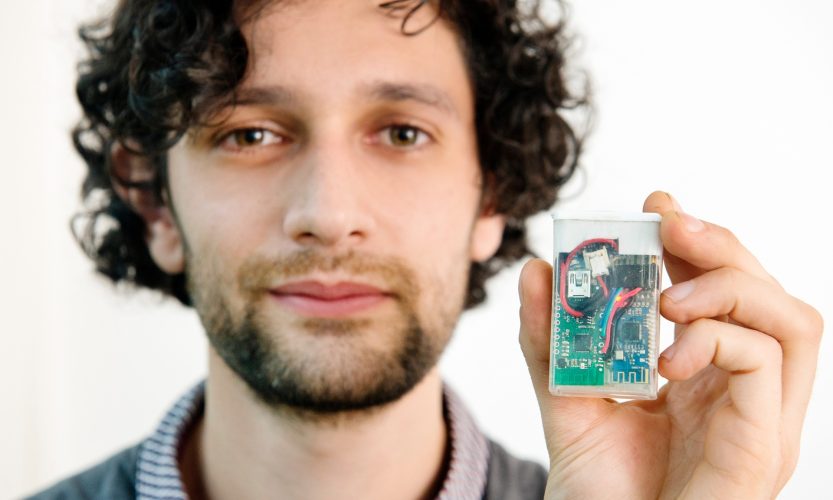
The “TIC TAC-tics” of Timothy Omer Hacking Diabetes
Timothy Omer is a part of the DIY revolution in the healthcare system and also of the SPARKS-initiated exposition “Beyond The Lab”, which is opening at the 29th of March at the Ars Electronica Center. His example of hacking Continuous Glucose Monitoring Systems demonstrates that patients get a grip on their condition.
-
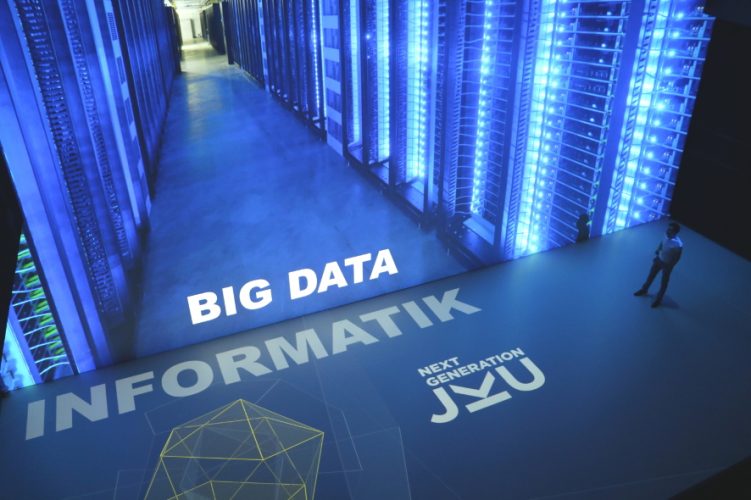
Seeing Data – Understanding Cancer
They’re quoted in some of the most highly respected scientific journals worldwide but in their homeland, Austria, they’re hardly known. So, who are these brilliant young Upper Austrian scientists, and what exactly are they performing research on at Johannes Kepler University in Linz?
-
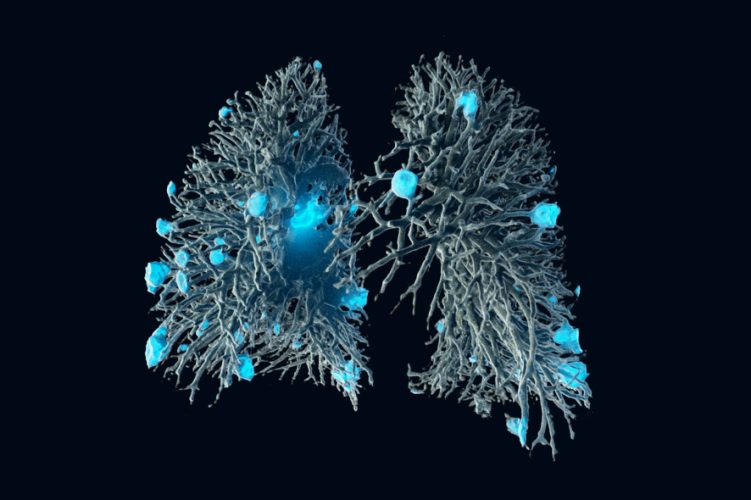
Pathfinding in the Human–Computer Medicine
During the last three decades we have witnessed the growing complexity of technology and a flood that is filling our hospitals today—functional imaging, full gene sequencing, automated laboratory medicine and much more. But the role and responsibility sharing in healthcare has remained almost unchanged despite almost complete digitization. In this Deep Space talk Professor Horst…
